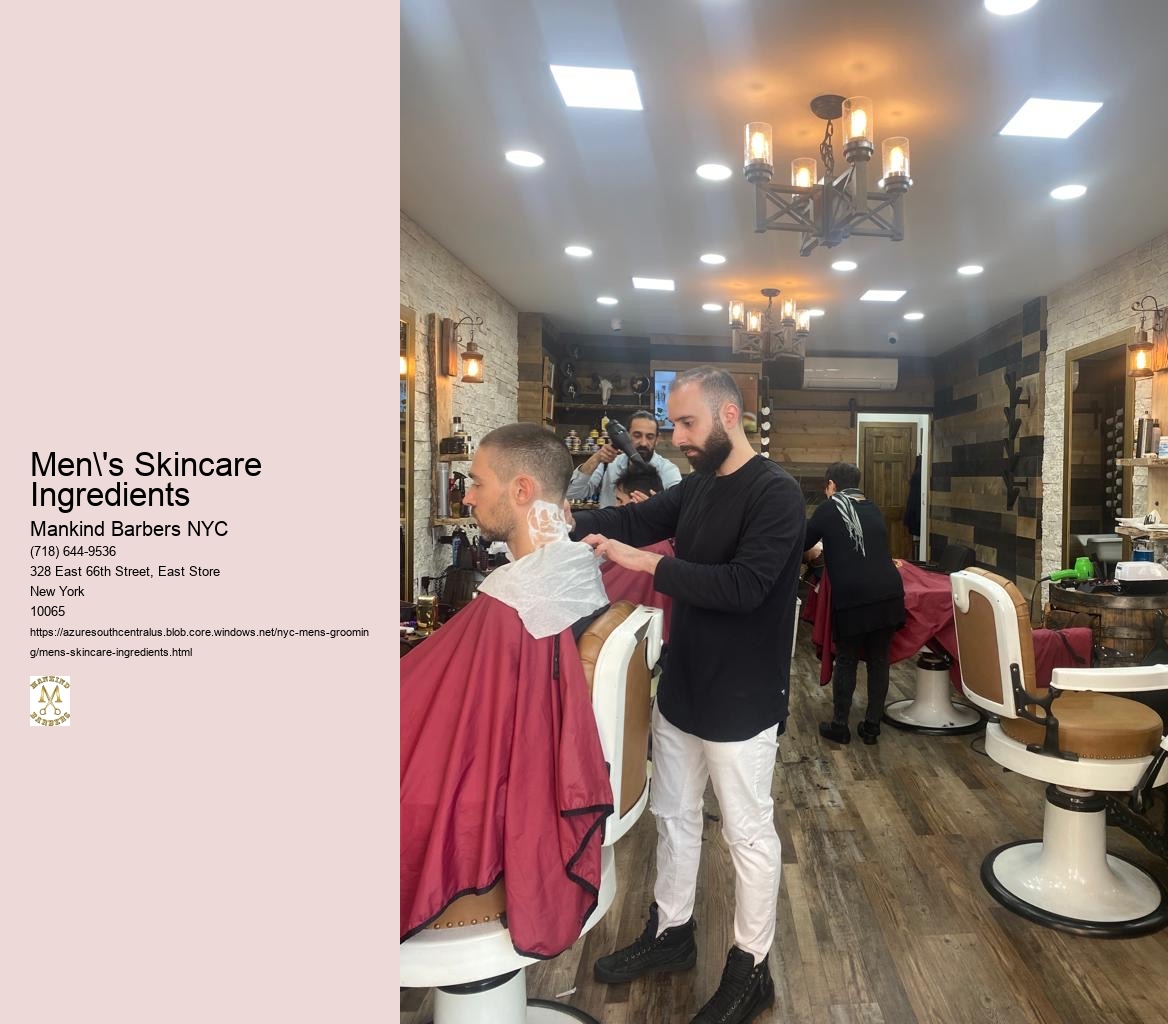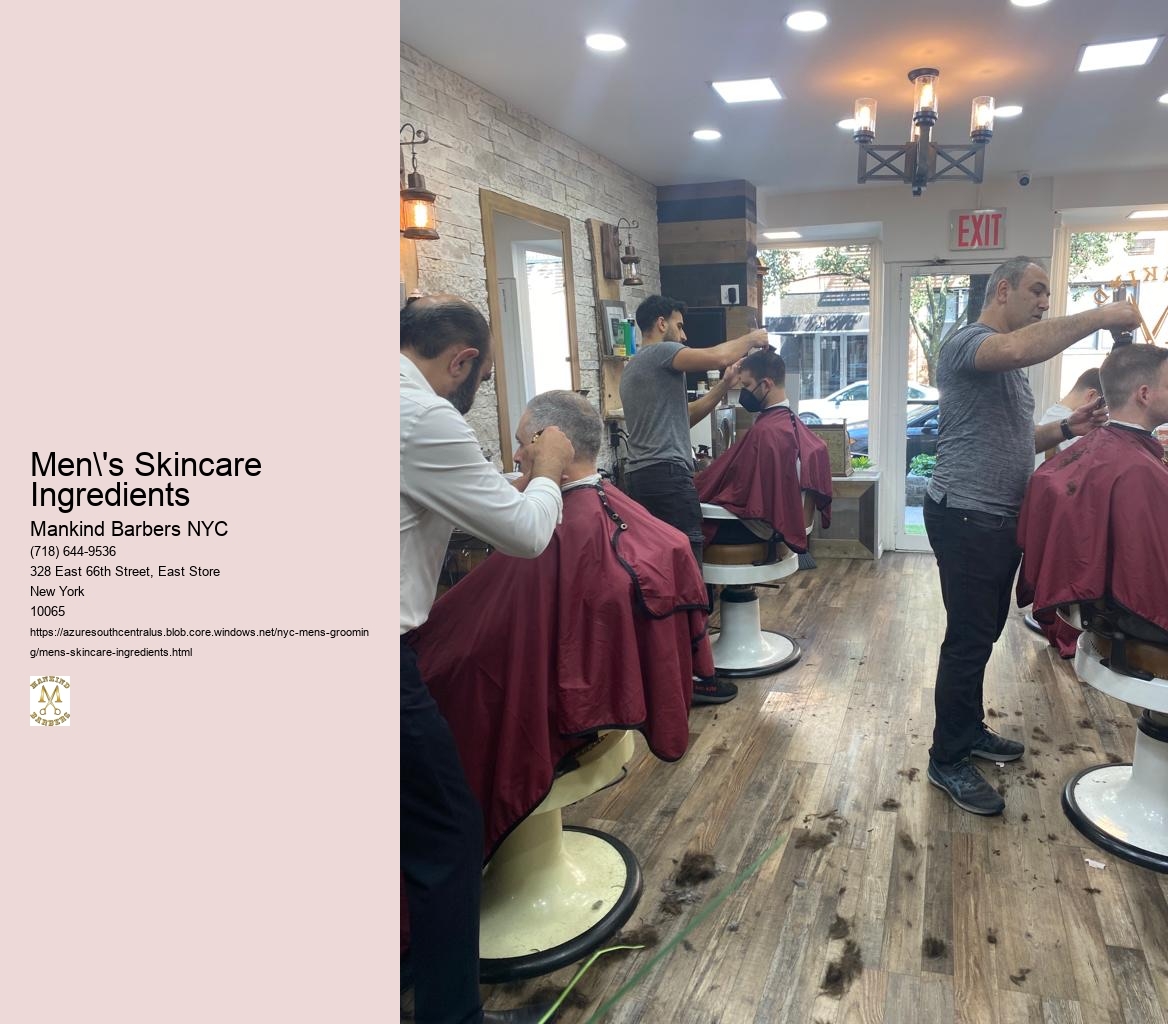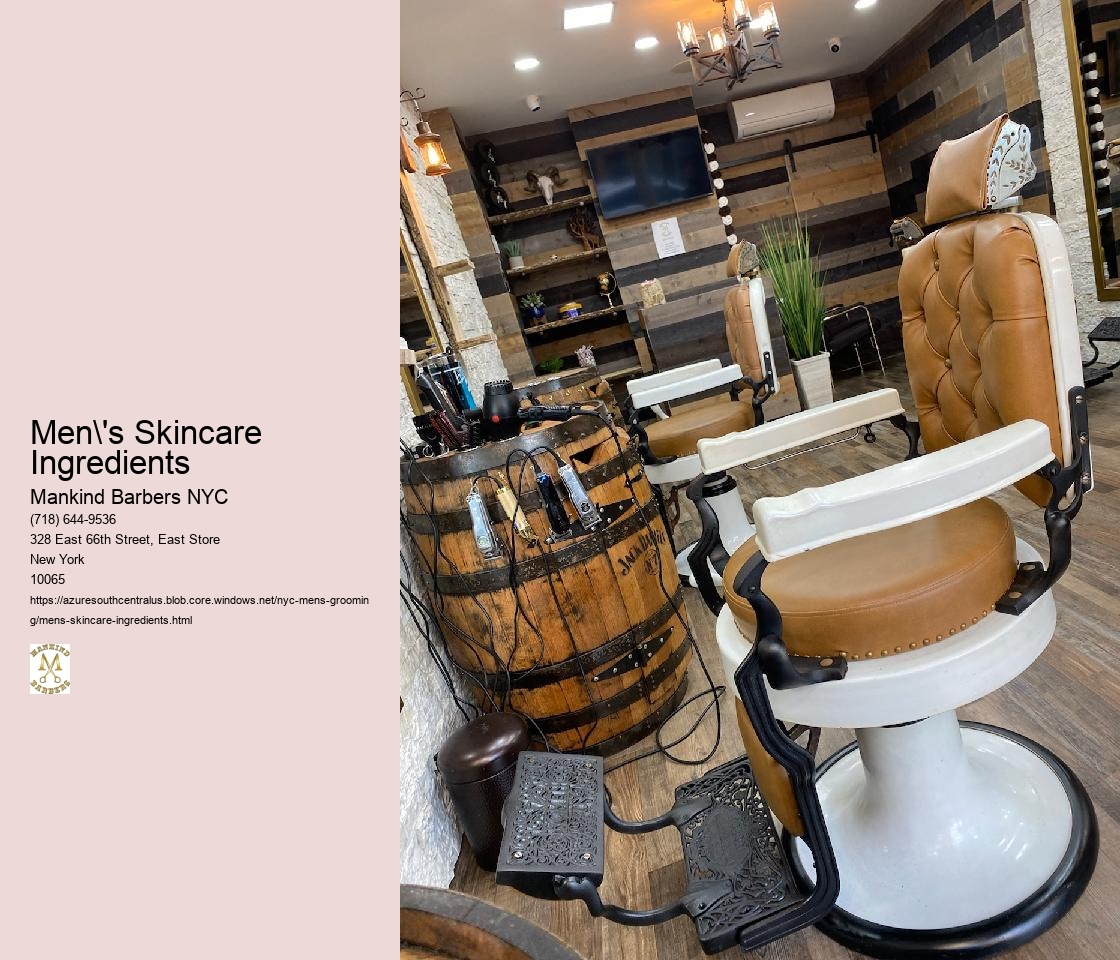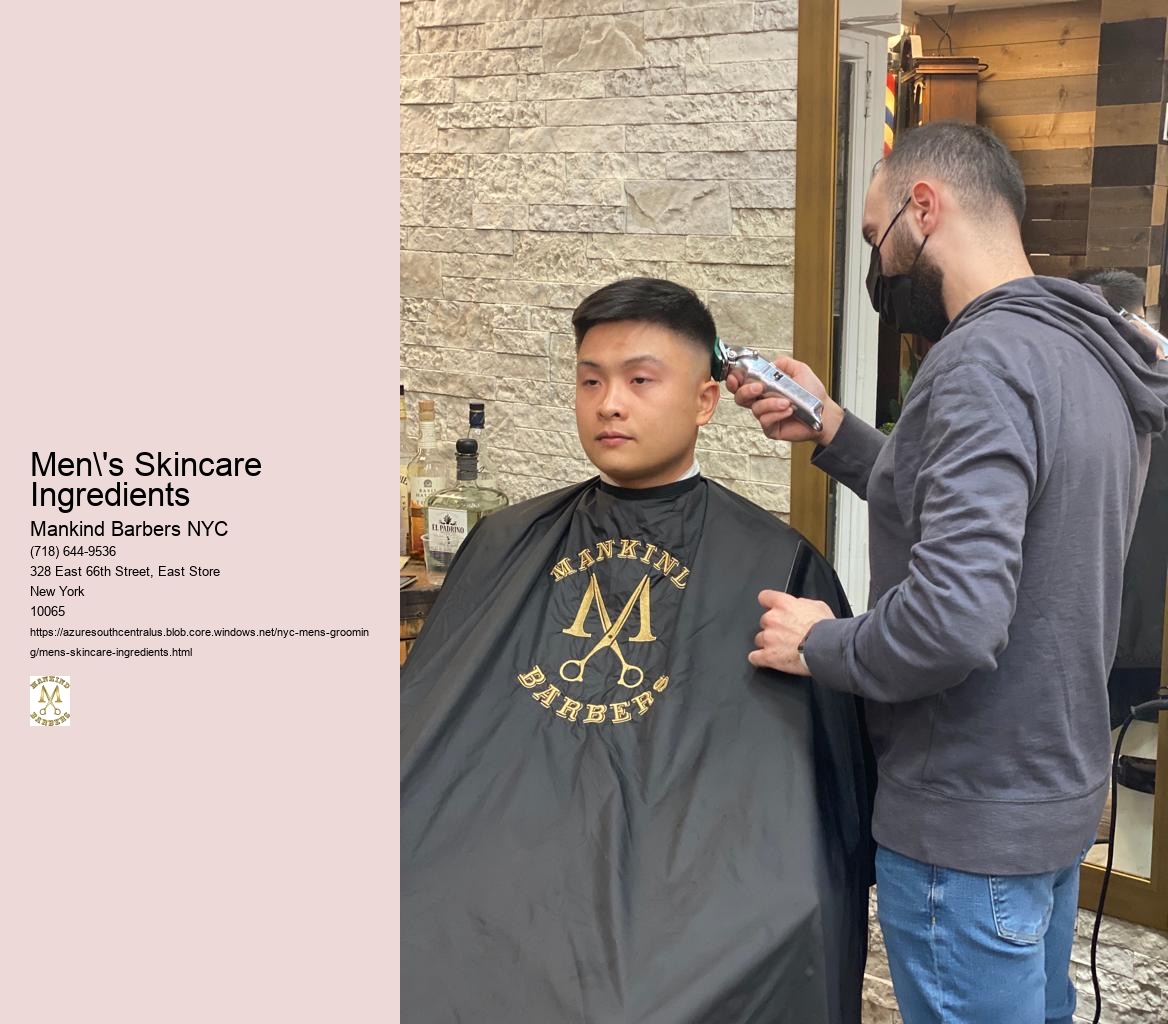

Hyaluronic acid is a beneficial ingredient in men's skincare products for several reasons. Firstly, it is a powerful humectant, meaning it attracts and retains moisture in the skin. This helps to hydrate and plump the skin, reducing the appearance of fine lines and wrinkles. Additionally, hyaluronic acid has a soothing effect on the skin, making it ideal for men with sensitive or irritated skin. It also has antioxidant properties, which can help protect the skin from environmental damage. Overall, incorporating hyaluronic acid into men's skincare routines can help improve skin hydration, reduce signs of aging, and promote a healthier complexion.
Retinol is a key ingredient in men's skincare products for its ability to improve the appearance of fine lines and wrinkles. It is a derivative of vitamin A and works by increasing cell turnover and stimulating collagen production in the skin. This helps to smooth out the skin's texture and reduce the depth of wrinkles. Retinol also has exfoliating properties, which can help to unclog pores and prevent breakouts. However, it is important for men to start with a low concentration of retinol and gradually increase usage to avoid potential irritation. With consistent use, retinol can significantly improve the overall appearance of fine lines and wrinkles in men's skin.
Men with sensitive skin can use products containing glycolic acid, but it is important to proceed with caution. Glycolic acid is an alpha hydroxy acid (AHA) that exfoliates the skin by removing dead skin cells and promoting cell turnover. This can help to improve skin texture and reduce the appearance of fine lines and wrinkles. However, glycolic acid can also be irritating to sensitive skin, so it is recommended to start with a low concentration and gradually increase usage if tolerated. It is also important to follow up with a moisturizer and sunscreen to protect the skin. Men with sensitive skin should consult with a dermatologist before incorporating glycolic acid into their skincare routine.
Aftercare for tattoos
Niacinamide plays a crucial role in men's skincare routines due to its numerous benefits for the skin. It is a form of vitamin B3 that has been shown to improve the skin's barrier function, reduce inflammation, and regulate oil production. This makes it particularly beneficial for men with oily or acne-prone skin. Maintaining razors and shavers Niacinamide also helps to even out skin tone, reduce the appearance of hyperpigmentation, and minimize the size of pores. Additionally, it has antioxidant properties that can protect the skin from environmental damage. Incorporating niacinamide into men's skincare routines can help promote a healthier complexion and address various skin concerns.
Caffeine is a popular ingredient in skincare products for its ability to reduce puffiness and dark circles in the under-eye area of men. It works by constricting blood vessels and reducing fluid buildup, which can help to minimize the appearance of puffiness. Caffeine also has antioxidant properties that can help to protect the delicate skin around the eyes from free radical damage. Avoiding common beard grooming mistakes Additionally, it has a brightening effect, which can help to reduce the appearance of dark circles. When applied topically, caffeine can provide a refreshing and rejuvenating effect, making it a valuable ingredient in men's skincare products targeting the under-eye area.

There are several ingredients that can help soothe razor burn and irritation in men's skincare products. Aloe vera is a popular choice due to its soothing and anti-inflammatory properties. It can help to reduce redness, calm irritation, and promote healing. Another beneficial ingredient is chamomile, which has anti-inflammatory and antioxidant properties. It can help to soothe and calm the skin, reducing discomfort and redness. Men's grooming influencers and experts Additionally, ingredients like witch hazel and tea tree oil have astringent and antimicrobial properties, which can help to prevent infection and soothe razor burn. Incorporating these ingredients into men's skincare products can help provide relief and promote healthier, more comfortable skin after shaving.
Incorporating antioxidants like vitamin C into men's skincare routines can provide numerous benefits for the skin. Vitamin C is a powerful antioxidant that helps to neutralize free radicals, which can cause damage to the skin and accelerate the aging process. It also plays a key role in collagen synthesis, which helps to improve skin elasticity and reduce the appearance of fine lines and wrinkles. Vitamin C can also help to brighten the skin, even out skin tone, and fade hyperpigmentation. Additionally, it has anti-inflammatory properties that can help to calm and soothe the skin. Men's grooming routines Including vitamin C in men's skincare routines can help protect the skin from environmental damage, promote a more youthful complexion, and address various skin concerns.

To maintain a well-groomed mustache, it is important to follow a regular grooming routine. Start by washing your mustache with a mild cleanser to remove any dirt or debris. Next, comb your mustache using a fine-toothed mustache comb to detangle any knots and ensure a neat appearance. Trim your mustache regularly using a pair of sharp mustache scissors, taking care to trim only the desired length and shape. Apply a small amount of mustache wax or balm to style and shape your mustache, using your fingers or a mustache brush to distribute the product evenly. Finally, remember to moisturize your mustache and the skin underneath to keep it healthy and prevent dryness or itchiness. By following these steps and maintaining a consistent grooming routine, you can keep your mustache looking well-groomed and stylish.
Yes, there are grooming routines specifically designed for men with long, curly hair. These routines typically involve a combination of cleansing, conditioning, and styling products that cater to the unique needs of curly hair. It is important for men with long, curly hair to use a gentle shampoo that does not strip the hair of its natural oils. They should also incorporate a moisturizing conditioner to help hydrate and nourish the curls. Additionally, using a leave-in conditioner or curl cream can help define and enhance the natural curl pattern. Regular trims are also essential to prevent split ends and maintain the overall health of the hair. Men with long, curly hair may also benefit from using a wide-toothed comb or a brush with natural bristles to detangle and style their hair. Overall, a consistent grooming routine that addresses the specific needs of long, curly hair can help men achieve healthy, well-maintained locks.
Ingrown hairs on the beard can be prevented and treated through a combination of proper grooming techniques and skincare practices. To prevent ingrown hairs, it is important to exfoliate the skin regularly using a gentle scrub or brush to remove dead skin cells and unclog hair follicles. Additionally, using a sharp, clean razor and shaving in the direction of hair growth can help minimize the risk of ingrown hairs. After shaving, applying a soothing aftershave lotion or balm can help reduce inflammation and irritation. If ingrown hairs do occur, gently exfoliating the affected area with a warm washcloth can help release trapped hairs. Avoid picking or squeezing the ingrown hairs, as this can lead to infection. Applying a warm compress to the area can also help reduce inflammation. In more severe cases, a dermatologist may recommend topical creams or prescribe medication to treat ingrown hairs.
Yes, there are grooming routines specifically designed for men with short, straight hair. These routines typically involve a combination of hair care and styling techniques to enhance the natural texture and appearance of the hair. Some key steps in a grooming routine for men with short, straight hair may include using a gentle shampoo and conditioner to keep the hair clean and healthy, using a lightweight styling product to add volume and texture, and regularly trimming the hair to maintain a neat and polished look. Additionally, incorporating a regular scalp massage and using products that promote hair growth can help to keep the hair and scalp in optimal condition. By following a tailored grooming routine, men with short, straight hair can achieve a stylish and well-groomed appearance.
Men with oily hair and skin can benefit from a few grooming tips to help manage their excess oil production. Firstly, it is important to choose the right shampoo and conditioner specifically formulated for oily hair. Look for products that contain ingredients like tea tree oil, salicylic acid, or witch hazel, as these can help regulate oil production and keep the scalp clean. Washing the hair every day or every other day can also help control oil buildup. Additionally, using a gentle facial cleanser twice a day can help remove excess oil from the skin without stripping it of its natural moisture. Men with oily skin should also opt for oil-free moisturizers and avoid heavy, greasy products that can clog pores. Regular exfoliation can help remove dead skin cells and unclog pores, reducing the appearance of oiliness. Finally, it is important to maintain a healthy diet and lifestyle, as factors like stress and poor nutrition can contribute to oily hair and skin.